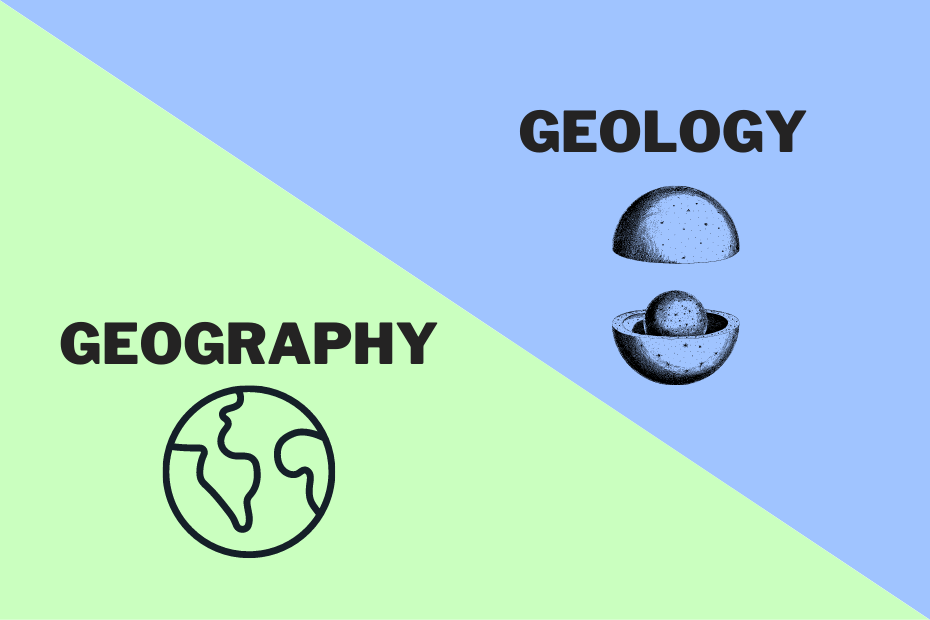Geology: Unraveling Earth's Geological Story
Introduction
Geology, the science of the Earth, explores the processes that have shaped our planet over billions of years. From the majestic mountains to the depths of the oceans, geology unveils the rich geological history and the dynamic forces that have shaped the Earth's surface. In this blog, we embark on a captivating journey through the realm of geology, delving into its essence, key principles, and the profound impact it has on understanding the past, present, and future of our planet.

The Essence of Geology
At its core, geology is the study of the Earth, including its materials, structure, processes, and history. It examines the physical and chemical properties of rocks, minerals, and the forces that shape the Earth's surface and interior. Geology plays a crucial role in understanding natural hazards, the formation of natural resources, and the impact of human activities on the environment.
Core Principles of Geology
Geology is guided by several core principles that provide insights into Earth's history and processes:
Uniformitarianism: The principle of uniformitarianism posits that geological processes observed today have operated throughout Earth's history, shaping the planet over time.
Rock Cycle: The rock cycle describes the continuous transformation of rocks between igneous, sedimentary, and metamorphic forms through geological processes.
Plate Tectonics: Plate tectonics theory explains the movement and interactions of Earth's lithospheric plates, resulting in earthquakes, volcanoes, and mountain-building.
Stratigraphy: Stratigraphy studies the layering of rocks and fossils, providing a chronological record of Earth's history.
Groundbreaking Discoveries
Throughout history, geology has witnessed transformative discoveries that revolutionized our understanding of the Earth:
Theory of Plate Tectonics: The development of the theory of plate tectonics by Alfred Wegener and others explained the movement of continents and the formation of mountain ranges.
Geological Time Scale: The establishment of the geological time scale provided a framework for understanding Earth's history and the vastness of geological time.
Fossil Evidence: Fossils of ancient plants and animals provided evidence for past environments and the evolution of life on Earth.
Seafloor Spreading: The discovery of seafloor spreading and mid-ocean ridges supported the theory of plate tectonics.
Applications of Geology
Geology has diverse applications with significant societal implications:
Natural Hazards: Geology contributes to the understanding and mitigation of natural hazards, including earthquakes, volcanic eruptions, landslides, and tsunamis.
Resource Exploration: Geologists play a crucial role in discovering and extracting natural resources such as minerals, fossil fuels, and groundwater.
Environmental Protection: Understanding the geological processes that affect the environment helps in managing land use, protecting water resources, and preserving ecosystems.
Climate Change: Geology provides insights into past climate changes, aiding in the study of current and future climate trends.
Challenges and the Future of Geology
As we continue to explore the Earth's geological processes, geology faces challenges:
Climate Change Mitigation: Geologists play a crucial role in understanding climate change and advocating for sustainable practices.
Resource Management: The responsible management of natural resources is essential for a sustainable future.
Geohazards Prediction: Enhancing geohazards prediction and monitoring helps safeguard vulnerable communities.
Conclusion
Geology is the chronicle of our planet's history, unraveling the story of its formation and evolution over millions of years. From the rocky mountains to the depths of the ocean, geology unveils the secrets of Earth's past and informs our decisions for the future. As we delve deeper into the realms of geology, let us cherish the planet we call home and work collectively to protect and preserve its precious resources. By embracing the wisdom of geology, we can forge a sustainable path that respects the dynamic forces of the Earth while safeguarding its beauty and biodiversity for generations to come. Geology is a testament to the interconnectedness of all life, reminding us that we are custodians of a planet filled with wonders waiting to be explored and cherished.

Comments
Post a Comment